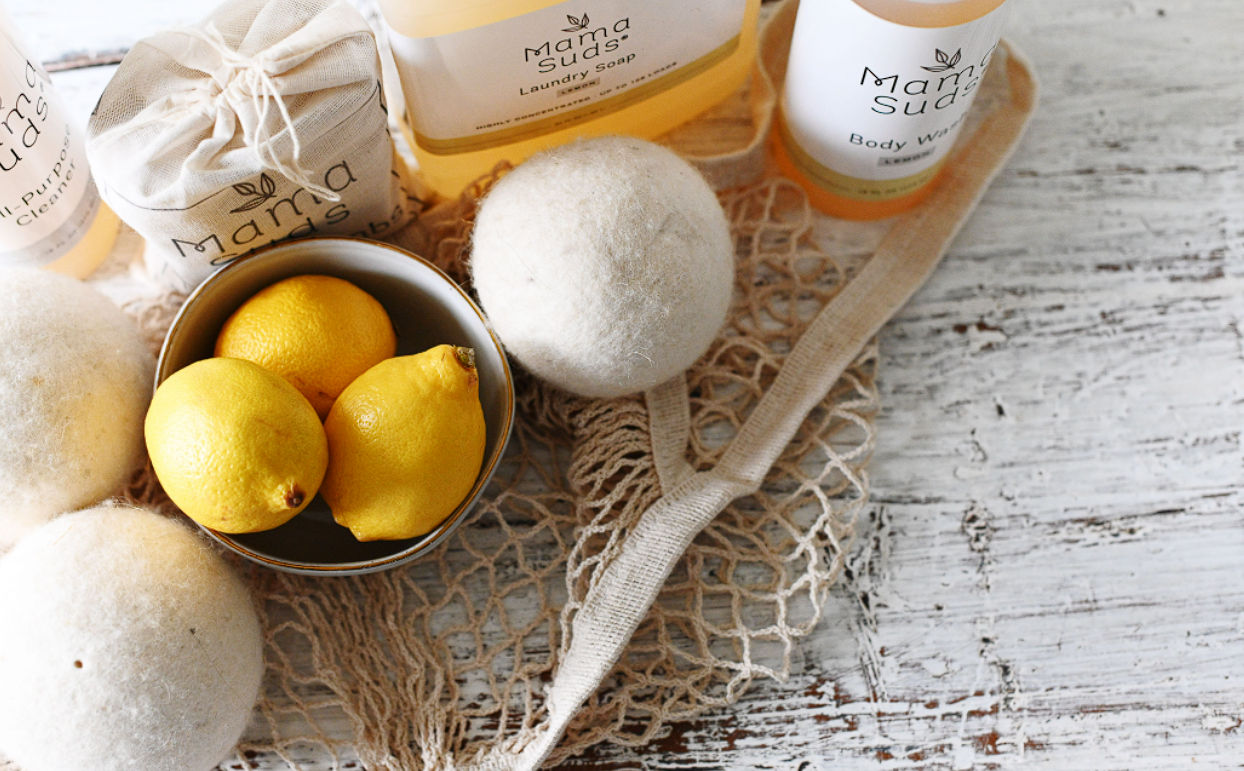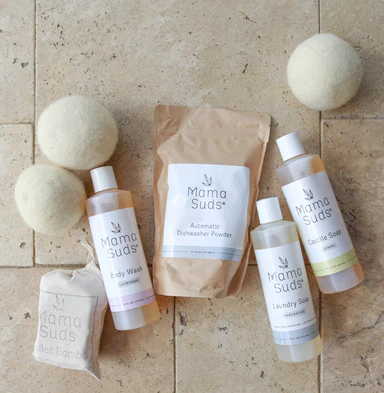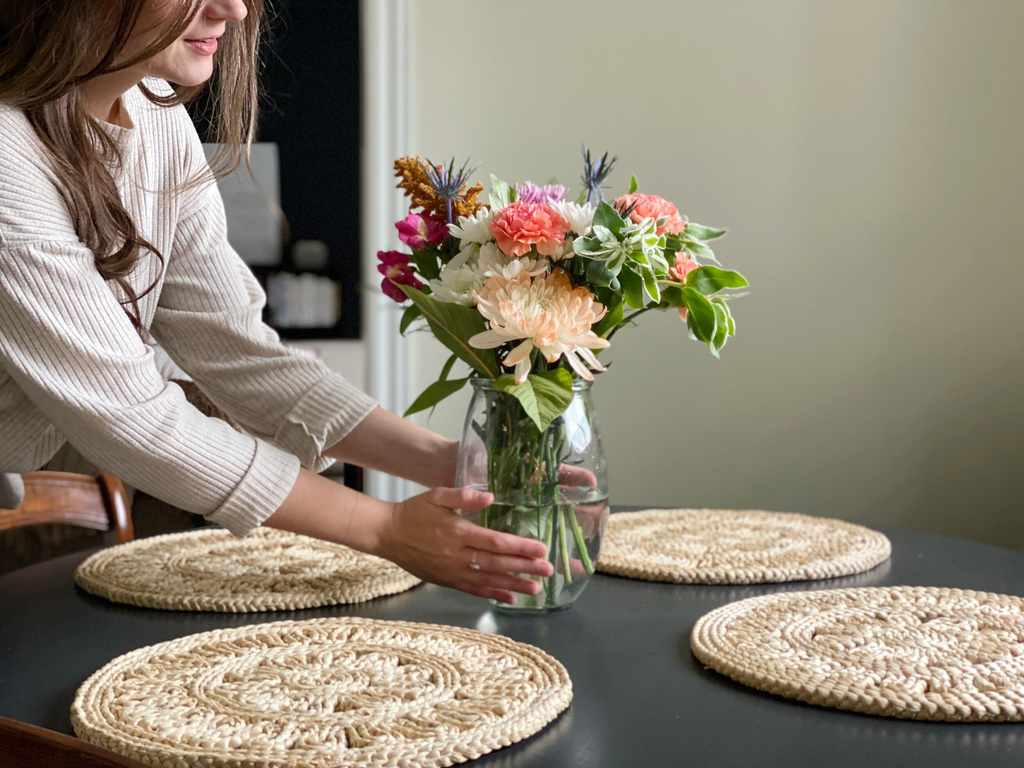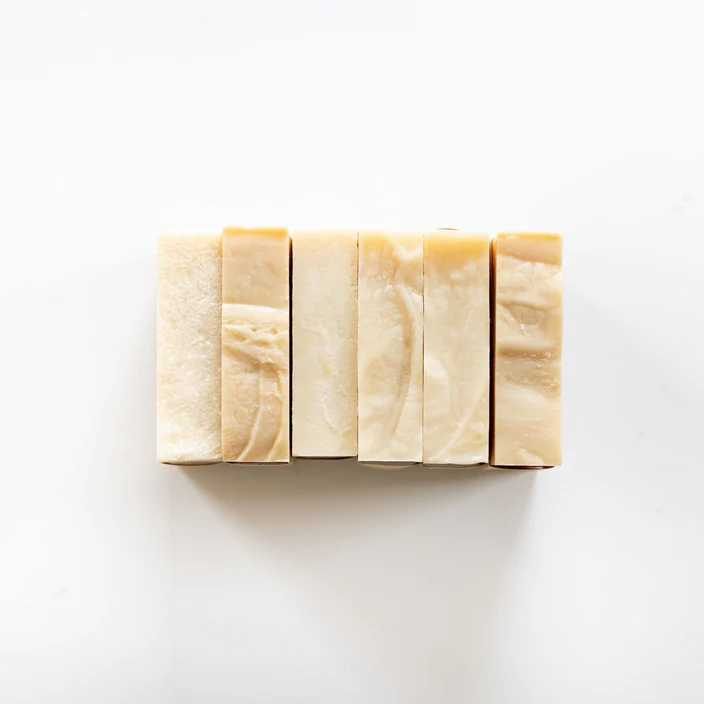
The CleanSuds Blog
Where education and truthful facts are easy to come by.

Real Stories, Real Impact: How MamaSuds Changed My Cleaning Routine
MamaSuds customers have experienced real-life changes in their homes and lives.
• Jane's children's allergies improved after switching to MamaSuds.
• Mark reduced his carbon footprint with MamaSuds' eco-friendly products.
• Sarah found peace of mind knowing MamaSuds is safe for her pets.
• Emily confidently prepared for her baby's arrival with MamaSuds products.
• Join the MamaSuds family for a safer, cleaner home.

Behind the Scenes: How Our Natural Cleaners are Made
Natural cleaners are a result of a labor of love, commitment to sustainability, and dedication to health.
• The company has a philosophy of using only the best, most natural ingredients that are renewable, biodegradable, and effective.
• Ingredients are sourced from suppliers who share the same values and strict standards for purity and sustainability.
• Every batch of cleaner undergoes rigorous testing for quality and effectiveness.
• Eco-friendly packaging is used to keep the contents fresh and potent until use.
• The company is committed to transparency, health, and the environment.
• Using their products promotes a healthier home and a happier planet.

Harnessing the Healing Power of Nature: The Benefits of Outdoor Exercise
Outdoor exercise offers a unique opportunity to improve mental and physical health.
• Spending time in nature can lower stress levels, enhance mood, and increase creativity and concentration.
• The variability of outdoor terrain can improve balance, strength, and agility during exercise.
• Outdoor air tends to be cleaner than indoor air, making it beneficial for those with respiratory issues.
• Exercising outdoors can lead to more sustainable fitness habits.
• Suggested activities include trail running or hiking, outdoor yoga, cycling, kayaking or paddleboarding, rock climbing, and community clean-up walks.
• Incorporating outdoor activities into your routine enhances our well-being in every dimension.

Say Goodbye to Chemical Air Fresheners: Natural Ways to Freshen Your Home
Mother Nature offers a plethora of natural options for keeping homes smelling fresh and pleasant.
• Fresh flowers not only add beauty but also gentle, mood-boosting scents to any space.
• Burning natural incense made of pure ingredients can create a serene atmosphere.
• Opening windows and doors for cross-ventilation brings in fresh air and positive energy.
• Baking soda is a natural odor-neutralizer that can be used in various areas of the home.
• DIY reed diffusers with essential oils offer a customizable, continuous fragrance without any heat or electricity.
• Growing herbs like basil, mint, and rosemary can purify the air and add a touch of nature's freshness to your kitchen.
• By choosing natural air freshening methods, we are creating healthier, happier living spaces.

Essential Oils for a Fresher, Cleaner Home
Essential oils are concentrated plant extracts with powerful cleaning properties.
• Certain essential oils, like tea tree and eucalyptus, exhibit strong antibacterial and antiviral activities.
• Lemon is great for cutting through grease and grime, tea tree is a powerhouse against bacteria, lavender is ideal for freshening laundry, eucalyptus tackles mold and mildew, and peppermint deters pests like ants and spiders.
• Incorporating essential oils into DIY cleaning solutions is easy and effective.
• Always dilute essential oils as directed and conduct a patch test to avoid damage.
• Cleaning with essential oils not only results in a fresher home but also promotes health and aligns daily habits with nature.

How to Involve Your Kids in Green Cleaning Practices
Green cleaning is a great opportunity to teach kids about responsibility and caring for the planet while keeping your home clean.
• Educate children on the harmful effects of conventional cleaning products in a fun and interactive way.
• Involve kids in making non-toxic cleaning products using simple ingredients and creative names.
• Assign age-appropriate tasks and track their progress with a colorful chart.
• Make cleaning fun by turning it into a game with time limits or scavenger hunts.
• Celebrate their efforts and lead by example to instill positive attitudes towards green cleaning.

The Beginner's Guide to Transitioning to All-Natural Home Cleaning
Understand the motivations behind switching to all-natural home cleaning.
• Educate yourself on common toxins found in traditional cleaning products.
• Start small by replacing a few products at a time.
• Read labels carefully and look for certifications like USDA Organic or EcoCert.
• Empower yourself with DIY recipes using natural ingredients like vinegar and baking soda.
• Share your knowledge and experiences with others.
• Be patient and kind to yourself as you transition to a toxin-free lifestyle.
Why Switch to All-Natural Home Cleaning?
Making the switch to all-natural home cleaning can have numerous benefits for both your health and the environment. By using natural ingredients, you can avoid exposing yourself and your family to harmful chemicals found in traditional cleaning products. Additionally, by reducing the use of these harsh chemicals, you are also helping reduce their impact on the environment.

Safe, Natural Cleaning Solutions for Pet Owners
Using non-toxic cleaning solutions is important for pet owners to maintain a safe and healthy environment for their pets.
• These alternatives not only help the environment, but also reduce health risks for pets exposed to harmful chemicals.
• Natural cleaners can help reduce allergies, are safer for pets who lick and sniff surfaces, and are better for the planet we share with other species.
• Easy-to-make pet-safe cleaning solutions include an all-purpose cleaner with vinegar and lemon essential oil, a carpet freshener using baking soda, and a window cleaner with water, white vinegar, and liquid dish soap.
• Pet owners should always keep their pets out of the room when cleaning, store products out of reach, and regularly clean their pet's belongings with natural solutions.
• Switching to all-natural cleaning practices promotes safety, health, and happiness for both pets and their owners.

The Ultimate Guide to Understanding Soap Ingredients
Soap is an essential part of daily hygiene, and understanding its ingredients can help make healthier choices.
• Glycerin is a natural humectant that softens skin, while coconut oil has antibacterial and antifungal properties.
• Rapeseed oil is rich in Vitamin E and protects skin from environmental damage.
• Harmful ingredients include SLS, SLES, parabens, 1,4-dioxane, and triclosan.
• These chemicals can strip skin of natural oils, cause irritation and allergic reactions, mimic estrogen, and even contribute to environmental pollution.
• When choosing soap, it's important to opt for natural ingredients and avoid harsh chemicals by reading labels.


